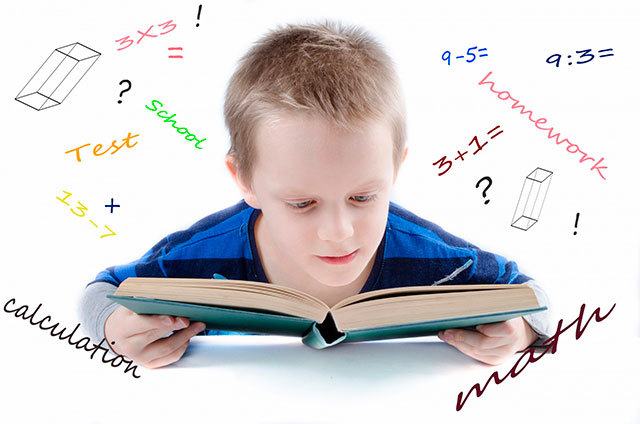Many families are comfortable reading with their children. It would be great if we found as many who were advocates of math concepts with their children.
Think about your attitude toward math. It is important to remember that your attitude is likely to be passed on to your child.
You can be a positive influence in helping your child learn to appreciate the value of math in her life and in preparing for her future.
You have the opportunity in your everyday interaction with your children to help them learn math in a positive, fun way. Helping her learn doesn’t mean you can’t have fun. You can play with her and make games out of almost any math skill.
Learning math at home begins with mathematics talk with your child. Include math talk whenever you can. This shows your child how math works in his own life.
Sing songs with counting in them. Go on number hunts. Teach her the value of numbers by counting out her portions of cereal. Ask her if she would rather have one or three. Count the rails on the fence as you go for a walk.
Young children frequently do not understand that counting means naming numbers in a specific order. You can make this point when you count anything in a series.
Throughout the day find ways for your child to practice her math skills. Ask your child how many letters came in the mail. Ask her to bring you the dogs’ two bowls so you can feed them. Have her put four plates on the table for dinner. Math is everywhere.
As she becomes older, your conversation will change but the need to continue your math talk remains. You will need to help her understand how to use a measuring cup with names like one-fourth or one-half. This can begin in grade 1 or 2 and it is the introduction for learning fractions.
Shapes become a part of learning math. Going to the grocery store, especially the produce section, is filled with opportunities to talk about math. Even just driving on the highway where license plates give an older child a chance to add numbers.
Even talking about the difference between odd and even numbers or terms like more than and less than are chances to learn more math.
Another skill you teach when the time is right is to work with a calculator. This is easy to teach because kids today love things with buttons. By the time she uses a calculator, she will have been using your telephone or IPad so the calculator will be easy for her.
Cash in on learning
Another math skill is about money. This is something we all need to understand. Understanding about money begins early.
But remember, it is easy to hand your child some money but that isn’t a lesson about money. You need to talk about the value of the coins you give her or of the allowance she gets each week. You want her to learn something when you give her a quarter or a dollar.
Be a math advocate for your daughter as well as your son. Too often we send the message to our girls that math is difficult and they can’t do it as well as a boy can. Wrong. The message we need to send our daughters is that they can be really good at math.
After all, we want to have her believe that she can be the CEO of the company of tomorrow. That lesson begins very early.
I don’t write this because I am a woman; I write this because I am a mother and I want all my children to believe in their abilities. It is my responsibility to help all of my children not only believe in their abilities but to encourage them to try harder.
The child who learns to try harder (in anything) learns a valuable lesson: the child who tries the hardest most frequently succeeds.
The lesson about trying harder is one that not only children need to learn but so do parents or the people who are in a parenting role.
Recently I heard from a woman who receives the First Teacher newsletter. She wrote that she didn’t know how important she was to her child. That is a lesson each parent needs to know.
You are extremely important to your child. She or he is watching you, learning from you, imitating you and believing in you.
Your help, love, attention and involvement make a huge difference in your child’s life.
Cynthia Martin is the founder of the First Teacher program and director of Parenting Matters Foundation, which publishes newsletters for parents, caregivers and grandparents. Reach Martin at pmf@olypen.com or at 681-2250.



